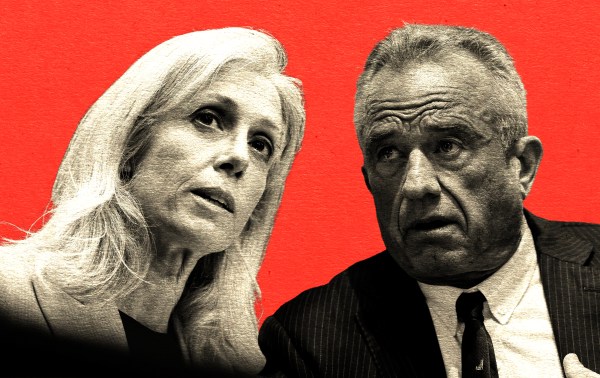
Dear Reader (especially those of you with a very positive mindset),
I like eggheadiness (even if Microsoft doesn’t think it’s a real word). But my thinking about it—let’s call it intellectualism if only to appease my word-processing overlords—has evolved a bit over the years. We’ll leave some of that for another time, but one lesson I’ve really taken to heart in the last decade is that just because you explain, analyze, defend, or critique something in very intellectual terms doesn’t mean the thing you’re talking about is very intellectual.
For instance, I love the movie They Live, starring Rowdy Roddy Piper and featuring one of the greatest lines in all of cinema: “I have come here to chew bubblegum and kick ass. And I’m all out of bubblegum.”
Awhile back, I discovered that They Live is considered by some intellectuals—I defecate you negatory—to be, in the words of communist writer Christos Kefalis, “the Marxist movie par excellence” and “one of the most devastating and sharp criticisms of American imperialism ever made,” representing “in exemplary fashion the process of neo-conservative barbarization in American society as well as the dynamic of its revolutionary overthrow.”
Now, I think that’s mostly nonsense. But that’s not relevant. Let’s say it’s true, or at least defensible. That doesn’t mean They Live director John Carpenter is a particularly sophisticated intellectual, with deep and penetrating insights about political economy, or that the film itself is an intellectually sophisticated product. Indeed, a big part of Carpenter’s intent was to complain about Ted Turner colorizing black-and-white movies (I wrote about all this for National Review back in 2018). I mean, the French thought Jerry Lewis was a genius. Maybe he was, but that doesn’t mean only an intellectual can really grasp the brilliance of The Nutty Professor.
In other words, if a duck looks, walks, talks, and swims like a duck, describing it in overly complicated and sophisticated ways doesn’t change the fact that it’s just a duck. Or as Homi Bhabha or Judith Butler might say, “the semiotic inflation of the anatine entity through an overdetermined lexicon of taxonomic obfuscation and epistemic grandiosity does not, in any substantive way, transmute the ontological immediacy of its being; whether articulated as an avian vector of liminal amphibiosity or a biomechanical instantiation of aquatic propulsion, the entity in question remains, inexorably and irreducibly, a duck.”
Indeed, I think a lot of academic speak is really an exercise in shibboleth formation, a way to create a group of insiders and outsiders who know the correct lingo and deploy it to keep arrivistes and the unenlightened out. Like speaking French in the 19th century, being able to speak various egghead dialects can be more of a cultural signifier than a sign of actual expertise, sort of like social scientist Rob Henderson’s notion of “luxury beliefs.”
We can end smoking faster.

The Don(ald).
Anyway, I bring this up because I find a lot of efforts to Trumpsplain on the right, and some on the left, to be guilty of what we might call the Egghead Fallacy. You can marshal as many references to political philosophy, theology, the Bible, or business gurus as you like, but they don’t actually make Trump a very complicated person or Trumpism a sophisticated project.
And I’ll throw some criticism at myself on this front. Last week I wrote about “sovereigntism,” a clunky word that is nonetheless preferable to “isolationism” to describe Trumpian, MAGA, or “America First” foreign policy. I still agree with what I wrote. And since I was writing about political and intellectual history as much as I was about Trump himself, I think it was defensible.
But calling Trump a “sovereigntist” can make it sound like Trump himself has a coherent, sophisticated, philosophical, or intellectual approach to foreign policy. And I don’t think that’s true.
I think he has a coherent worldview, but it’s not particularly sophisticated, philosophical, or intellectual. Indeed, a better way to think about it, and explain it, is that Trump has Don Coreleone’s or Tony Soprano’s foreign policy (apologies for repeating something I just ranted about in the solo Remnant, but I wanted to flesh out the point here).
I recently read this really interesting piece by John Ganz about how one of the most influential politicians in Trump’s life was Meade Esposito, the mobbed-up Democratic boss of Brooklyn, and de facto “shadow mayor” during the first Ed Koch administration. Esposito was a powerful ward heeler, but he was also an expert in pretending to be more powerful than he really was. Indeed, that’s kind of what made him so powerful—his ability to convince people he was more “connected” than he really was. Indeed, he got his start by fixing parking tickets for his “friends.” He wanted them to think he pulled strings in City Hall, but it turned out that he just paid the tickets with his own money. Jack Newfield noted in a 1986 profile for the Village Voice that even the omnipresent cigar hanging from Esposito’s mouth was a prop—he never actually lit it.
Still, Esposito may have been good at faking it until he made it, but he was a formidable boss and fixer all the same. “Esposito provided for his people,” Ganz writes. “Members could drop by the club and fill out an index card with their address, phone number, and problem. Everything from issues with landlords and trouble getting jobs to kids being bullied at school would come to his attention. He held court and doled out patronage at Foffe’s restaurant, in Brooklyn Heights, where a dish was named after him: veal Esposito. (The recipe, alas, is lost to time.)”
Esposito was a close confidante of mobster Paul Vario, and would meet with the Lucchese family capo in private (Paul Sorvino’s character in Goodfellas is based on Vario). Esposito also worked closely with Trump’s father, Fred. And young Don saw Esposito’s “leadership” style—cursing, threatening, intimidating, but also generous to friends and allies—as the very definition of how strong, manly political leaders acted.
When Trump came to Washington, he thought that Mitch McConnell would be like a Kentucky version of Esposito. He was disappointed to find out he wasn’t. (Maggie Haberman writes about this in her biography of Trump.)
Which brings me back to Trump’s mafia-style foreign policy. How does a mob boss act? Well, in broad brushstrokes, he treats his enemies—or rivals—with respect. The heads of the five families are like little monarchs or feudal lords. On their turf, they have, well, sovereignty. You must ask for permission to do things in their territory or deal with people under their authority. Meanwhile, when it comes to people in your own organization or network or territory, you can do what you want, to one extent or another. There are rules—made men and all that—but sh-t also rolls downhill. The key is that your allies, friends, and normal citizens under your authority must show you deference and respect. It’s a different kind of respect than that of an equal from another crime family. It should be obedient and deferential.
It’s no accident that a lot of this mirrors the ancient Roman way of doing things. Some of that was by design, or tradition brought over by Italians, but I think more of it stems from the fact this is a very natural way of organizing human affairs. Bosses, big men, chieftains, etc. all around the world and throughout history have sold protection, demanded tribute, and elevated “friendship”—or what the Romans called amicitia.
Anyway, this is basically how I think Trump sees the world. The American “family” is in charge in the Americas, Western Europe, Japan, and Australia, more or less. He’s the boss of that family. Xi Jinping is the boss of another “family.” Putin is the boss of his “family.” They are owed respect because they are strong, manly, powerful. And Trump wants to be seen the same way. This view illuminates why he sees nothing wrong with belittling and intimidating allies while sucking up to enemies or adversaries. His underbosses, his clients, need to get in line and show more deference to the head of the family. Tariffs are, in his mind, a way for America to get a bigger cut from other families, to gain tribute or sell access to American rackets. I think this is why he thinks NATO is essentially a kind of protection racket, and why member states aren’t “kicking up” enough to the boss. It also helps explain why he thinks Russia and China deserve deference on their turf.
In foreign policy language this is the notion of “spheres of influence,” a term that more or less originated in the 19th century, but for which the idea goes back to antiquity. Big and powerful states dominated and directed the smaller ones in their orbit. At the Berlin Conference of 1884-85, the big imperial powers “carved up” Africa. In the United States we had the Monroe Doctrine. Ancient Rome, ancient China, and ancient Persia had protectorates and vassal states.
I bring up all of that stuff not to make Trump’s view sound more sophisticated—and I certainly don’t want this to be read as a defense. No, I bring it up to illustrate that it’s an extremely familiar and natural way of seeing power, geopolitically and politically.
Trump sees nothing wrong with using the state to provide protection for friends—whether it’s pardons for Steve Bannon, Paul Manafort, Dinesh D’Souza, or the January 6 goons, or dropping the prosecution against New York City Mayor Eric Adams—and he sees nothing wrong with using the state to punish enemies. That’s the Esposito Way. It’s also the Roman way.
Indeed, until the Enlightenment it was simply the way politics worked—and it’s still the way politics works in much of the world.
In his magisterial two-volume Political Order books, Francis Fukuyama writes extensively about patronage networks, clientelism, and other ancient forms of political organization that exist in every society today and have existed since the dawn of politics itself.
The Romans had very intellectual and philosophical explanations for these forms of political association. So did the Greeks, and the Mandarins, and the Persians. In the 20th century, Carl Schmitt slapped a new coat of paint on the concept of spheres of influence and amacitia and tried to ground it in his own Nazi worldview. But that doesn’t make those things “Nazi” ideas. It just illustrates how dividing the world into friends and enemies is a basic human impulse, and that new ideologies emerge all the time to make this approach seem more sophisticated than it is.
It’s all interesting stuff, but it doesn’t make the underlying behavior “intellectual” or sophisticated. Or put another way, to the extent it’s intellectually sophisticated, the sophistication or complexity describes the effort to rationalize and defend something that is really quite simple and universal.
For instance, in The Social Order of the Underworld: How Prison Gangs Govern the American Penal System, David Skarbek has brilliantly documented how American prison gangs in the 1970s essentially reinvented social contracts or theories of social order that would have been utterly recognizable to Cicero or Plato. But no Mexican gang leader read that stuff. The social order emerged from the pursuit of self-interest and the need to regulate violence and patronage. “This bottom-up process of institutional emergence,” Skarbek writes, “was the result of inmate actions, but not the execution of any inmate design.”
So, again, I like this sovereigntist concept, because I think it’s a useful label for an approach to geopolitics. But that doesn’t mean that I think Trump asks himself “What would a sovereigntist do?” I think he asks himself things like, “What would be good for me?” “What would make me look strong and powerful?” “What can I get away with?” and “What’s my piece of the action?”
And no amount of eggheady spin can change that basic reality.
Various & Sundry
Canine Update: This has been the longest I’ve been away from my beasts in ages, and I really miss them. Everyone is doing fine. Zoë and Pippa have no doubt become institutionalized to living with Kirsten. That doesn’t make me all that sad, though, because they love Kirsten and Kirsten loves them. For the first week or so, another of Kirsten’s charges, Ari, stayed with them and, after a little mob-style “I’m the boss” growling from Zoë they all got along great. This week, their old buddy Scout has been with them and they’ve been having a great time, particularly in the snow. Though I think Pippa does think she’s been shorted on the treats and Zoë has been going to considerably unladylike lengths to ride shotgun alone. Meanwhile, reports from home are that Gracie has filed suit with the district court about our absence but she is otherwise doing just fine as well. I have no reports on Chester but, again, he’s got a very nice home and family to keep him warm.
The Dispawtch

Why I’m a Dispatch Member: I started as a Reagan Republican in high school, then became more and more libertarian. I like to think of myself as having a liberal heart and conservative brain. I want to help everyone, but recognize that government is rarely the right way to do it. Trump chased me out of the Republican Party, and I followed Jonah and David over here as soon as they left National Review. Happy to be with sensible conservatives who still believe in freedom and liberty and constitutional order.
Personal Details: Started as a radical conservative/libertarian leader in California Young Americans for Freedom. Somehow spent almost my entire career working for state and local government, and I resent that hating the socialists and the Trumpists equally somehow makes me seem like a moderate, when I still believe that “Extremism in defense of liberty is no vice. Moderation in pursuit of justice is no virtue.”
Pet’s Name: Dolly
Pet’s Breed: Beagle
Pet’s Age: 2.25
Gotcha Story: We lost our first beagle in July 2022. I’d gone through a divorce and a remarriage, and that puppy was what really brought my kids and my new wife together as a family. They’d already grown up and moved out, and the house was way too quiet and sad without them or our dog. Shortly after we lost the dog, my secretary told me her family’s beagles were expecting a litter of puppies in October, and she wanted to give us one of them. We picked her up Christmas week, and the house hasn’t been quiet since.
Pet’s Likes: Like our last beagle, she is a trail dog by day and lap dog by night. She loves walking and hiking and running on the beach, and sniffing everything that can be sniffed, and chasing everything that can be chased, but then she loves to curl up into a ball between our legs on the recliner or up against us and sleep the rest of the day. Lots of snacks. She also really likes the sound of her own houndy howl in defense of her home and family.
Pet’s Dislikes: People and animals walking by outside the house. Being told no. That jerk cat from next door that keeps taunting her from the roof of our garage or from the top of the fence.
Pet’s Proudest Moment: First time I trusted her enough to let her off leash to play with and chase the other dogs at the dog beach. She was sooooo excited!
Bad Pet: Well, I don’t know if it was wrongly or just unfairly high expectations, but she was a fangy, chewing, destructive, biting nightmare for most of her first 6-9 months, earning the nickname “Cujo” or “Cujita” (she and my wife are both half-Mexican, so the Spanish version was our preference most of the time) for her wicked ways. She has thankfully evolved into an almost fully functioning, rarely psychotic dog that now has full run of the house even when we’re gone.
Do you have a quadruped you’d like to nominate for Dispawtcher of the Week and catapult to stardom? Let us know about your pet by clicking here. Reminder: You must be a Dispatch member to participate.







Please note that we at The Dispatch hold ourselves, our work, and our commenters to a higher standard than other places on the internet. We welcome comments that foster genuine debate or discussion—including comments critical of us or our work—but responses that include ad hominem attacks on fellow Dispatch members or are intended to stoke fear and anger may be moderated.
With your membership, you only have the ability to comment on The Morning Dispatch articles. Consider upgrading to join the conversation everywhere.